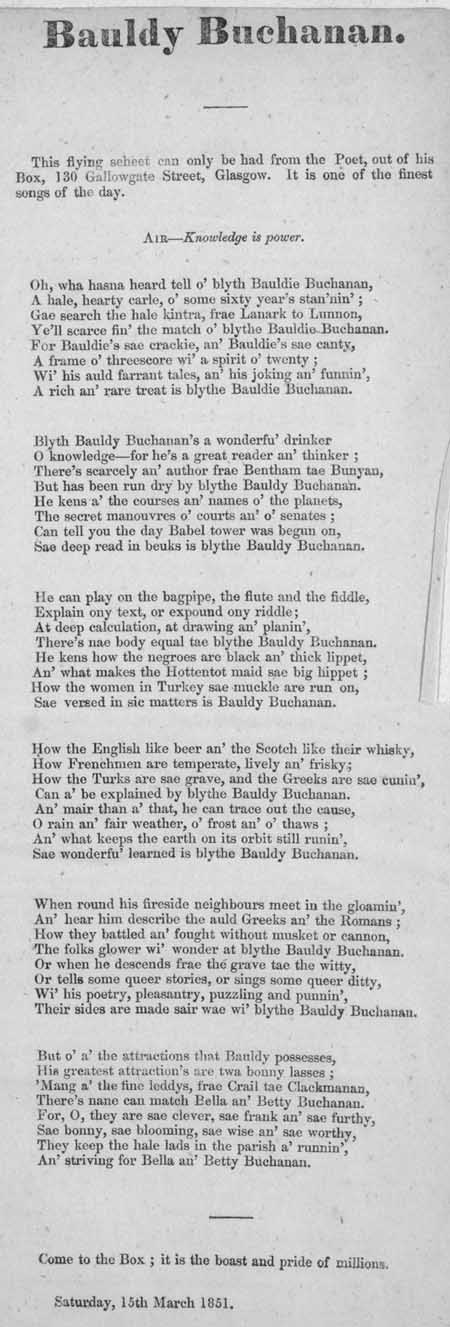Commentary
This sheet begins with a piece of self promotion: 'This flying scheet can only be had from the Poet, out of his Box, 130 Gallowgate Street, Glasgow. It is one of the finest songs of the day.' The ballad begins: 'Oh, wha hasna heard tell o' blyth Bauldie Buchanan'. and the song is to be sung to the tune 'Knowledge is Power'. It was printed in Glasgow on Saturday, 15th March 1851. This broadside was published by Matthew Leitch, who is possibly also its author. Leitch wrote much of his own material, as well as commissioning other 'poets'. His printing firm operated out of 130 Gallowgate between 1849 and May 1851. A very prolific printer, Leitch was known for using local subjects for inspiration. 'Bauldy Buchanan' is probably a real person, a much-loved local character according to this account.
The Poet?s Box in Glasgow operated from 1849 to 1911. Matthew Leitch was the proprietor at 6 St. Andrew Lane?s, a narrow street on the south side of Gallowgate, from 1850 to 1858. His son William Munsie Leitch worked at the same address from 1859 to 1865 and at varous addresses in London Street until 1911. Many of the broadsides published by the Glasgow Poet?s Box were dated and some carried advertisements, not just for printed items but also for shoe blacking and ?soap for lovers?! Like the other ?boxes? in Dundee and Edinburgh, the Glasgow one sold love songs, sea shanties, parodies and dialogues. It is not clear what the connection between the different Poet?s Boxes were. They almost certainly sold each other?s sheets. It is known that John Sanderson in Edinburgh often wrote to the Leitches in Glasgow for songs and that later his brother Charles obtained copies of songs from the Dundee Poet?s Box. There was also a Poet?s Box in Belfast from 1846 to 1856 at the address of the printer James Moore, and one in Paisley in the early 1850s owned by William Anderson.
Early ballads were dramatic or humorous narrative songs derived from folk culture that predated printing. Originally perpetuated by word of mouth, many ballads survive because they were recorded on broadsides. Musical notation was rarely printed, as tunes were usually established favourites. The term 'ballad' eventually applied more broadly to any kind of topical or popular verse.
View Transcription | Download PDF Facsimile
|
 |
Date of publication:
1851 shelfmark: L.C.Fol.70(20b)
 View larger image
View larger image
|


